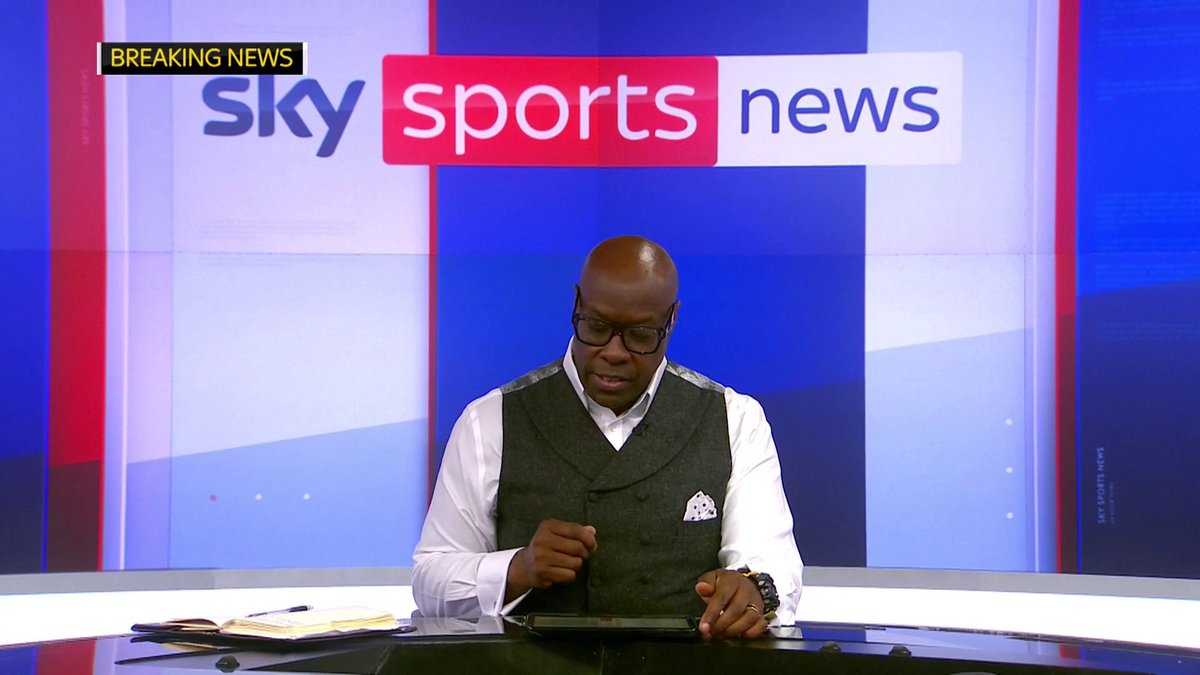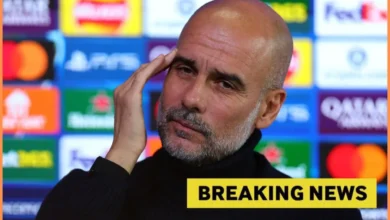Manchester City’s 115 Charges: The Verdict Delay and Transfer Market

Manchester City’s current predicament represents one of the most significant legal challenges in modern football history. The club faces an unprecedented 115 charges related to alleged breaches of the Premier League’s Financial Fair Play regulations, a case that has been hanging over the Etihad Stadium like a storm cloud since February 2023. What makes this situation particularly intriguing is not just the severity of the charges, but the apparent contradiction between the club’s precarious legal position and their remarkably confident approach to the transfer market.
The charges against Manchester City are comprehensive and damning in their scope. They encompass alleged violations spanning multiple seasons, including accusations of providing misleading financial information, failing to cooperate with Premier League investigations, and potentially inflating sponsorship deals to circumvent spending restrictions. These aren’t minor administrative oversights; they represent systematic alleged breaches that could fundamentally challenge the integrity of English football’s financial governance.
The Unprecedented Nature of City’s Case
To understand the gravity of Manchester City’s situation, one must consider the broader context of Financial Fair Play enforcement in English football. The Premier League’s approach to financial regulation has historically been inconsistent, with smaller clubs like Nottingham Forest and Everton bearing the brunt of points deductions for relatively minor infractions compared to the accusations leveled against City. This disparity has created a two-tier system of justice that has drawn criticism from across the football spectrum.
The 115 charges represent the most comprehensive attempt by the Premier League to hold a major club accountable for alleged financial irregularities. Unlike previous cases that focused on single-season breaches or specific transactions, City’s case allegedly involves systematic manipulation of financial records over multiple years. The complexity of these allegations explains, in part, why the investigation has taken so long to conclude.
Former Liverpool striker John Aldridge has been particularly vocal about the delay, suggesting that the extended timeline itself raises questions about the Premier League’s ability to effectively police its own regulations. His frustration reflects a broader sentiment among football observers who have watched City continue to operate with apparent impunity while their case remains unresolved.
The Transfer Market Paradox
Perhaps the most puzzling aspect of Manchester City’s current situation is their aggressive approach to the transfer market throughout 2025. While facing charges that could potentially result in severe sanctions including transfer embargos, points deductions, or even expulsion from the Premier League, City have embarked on one of their most ambitious spending sprees in recent memory.
The arrivals of Omar Marmoush, Rayan Cherki, Rayan Ait-Nouri, and Tijjani Reijnders represent a combined investment of well over £200 million, a figure that seems incongruous with a club potentially facing financial sanctions. This spending pattern has led to two competing theories about what City’s hierarchy knows about their impending verdict.
The first theory, championed by Aldridge and others, suggests that City’s confident spending indicates they have inside knowledge of a favorable outcome. This perspective argues that no rational organization would commit such significant resources while facing existential threats unless they were certain of their legal position. The reasoning follows that City’s executives, with access to the best legal minds in sports law, must have received assurances about their case’s likely outcome.
The alternative theory proposes that City’s spending represents a desperate attempt to strengthen their squad before potential sanctions take effect. Under this interpretation, the club is making preemptive moves to sign quality players who could help them weather a potential transfer embargo or points deduction. This approach would be consistent with a club that believes punishment is inevitable but wants to minimize its competitive impact.
Pep Guardiola’s Contract: A Telling Sign?
One of the most significant indicators of Manchester City’s confidence in their legal position was Pep Guardiola’s contract extension in November 2024. The Catalan manager, who has built his reputation on success and has never been associated with clubs facing existential crises, signed a new deal despite the uncertainty surrounding the charges.
Guardiola’s decision to commit his future to City carries particular weight given his previous statements about expecting a verdict by March 2025. His willingness to extend his contract suggests either remarkable faith in the club’s legal team or knowledge of developments not yet public. For a manager of Guardiola’s stature and options, staying at a club potentially facing severe sanctions would represent an enormous career risk unless he had strong reasons to believe in a positive outcome.
The timing of Guardiola’s contract extension also coincides with promises of significant investment in the squad, as evidenced by the recent transfer activity. This alignment between the manager’s commitment and the club’s spending suggests a coordinated strategy based on confidence rather than desperation.
The Premier League’s Enforcement Challenge
The delay in reaching a verdict on Manchester City’s case highlights the Premier League’s broader challenges in enforcing financial regulations. When the charges were first announced in February 2023, there was widespread expectation that a resolution would come within months. The fact that we’re now approaching the two-and-a-half-year mark without a conclusion raises serious questions about the league’s investigative and judicial processes.
This delay has practical implications beyond just Manchester City’s case. It creates uncertainty throughout the Premier League ecosystem, with clubs, players, and fans unable to plan with certainty about the future landscape of English football. The longer the case drags on, the more it undermines confidence in the Premier League’s ability to effectively govern itself.
The complexity of modern football finances partly explains these delays. Manchester City’s alleged breaches involve sophisticated financial structures, including related-party transactions, sponsorship valuations, and accounting methodologies that require extensive expert analysis. The Premier League must build a case that can withstand intense legal scrutiny, given the resources City can deploy in their defense.
Historical Context and Precedent
Manchester City’s case doesn’t exist in a vacuum. The club’s rise to prominence has been built on the investment of Sheikh Mansour and the Abu Dhabi United Group since 2008. This transformation from mid-table mediocrity to global powerhouse has always raised questions about compliance with financial regulations designed to prevent clubs from spending beyond their means.
Previous investigations into City’s finances have yielded mixed results. UEFA’s attempt to impose sanctions was ultimately overturned by the Court of Arbitration for Sport, primarily on procedural grounds rather than the substance of the allegations. This precedent provides both hope and concern for the current case – hope for City that they can again escape severe punishment, and concern for regulators that their enforcement mechanisms may be inadequate.
The contrast with other recent cases is stark. Everton and Nottingham Forest received points deductions for what many considered lesser infractions. This disparity has created a perception that the Premier League operates different standards for different clubs, undermining the credibility of the entire regulatory framework.
The Ripple Effects of Uncertainty
The uncertainty surrounding Manchester City’s case has implications far beyond the Etihad Stadium. Other clubs are watching closely to see whether the Premier League can successfully prosecute its most high-profile case. A failure to secure meaningful sanctions could essentially render Financial Fair Play regulations meaningless, opening the door for similar behavior from other clubs with wealthy ownership.
Conversely, severe sanctions against City could fundamentally reshape the Premier League landscape. The potential for stripped titles, points deductions, or transfer embargos could affect everything from European qualification to the historical record books. Such outcomes would represent a watershed moment in English football’s approach to financial governance.
The case also has implications for Manchester City’s current squad and management. Players who joined the club during the alleged breach period might face questions about their achievements, while current squad members must navigate the uncertainty about their club’s future. This psychological pressure could affect on-field performance, though City’s recent transfer activity suggests they’re trying to insulate themselves from such concerns.
The Role of Legal Strategy
Manchester City’s approach to their legal defense has been characteristically aggressive and well-resourced. The club has assembled a team of top-tier sports lawyers and financial experts to challenge every aspect of the Premier League’s case. This strategy has proven effective in previous encounters with regulators, most notably in their successful appeal against UEFA sanctions.
The club’s legal strategy appears to focus on both procedural challenges and substantive defenses. Procedural challenges might include arguments about the Premier League’s authority to investigate certain matters or the statute of limitations on older alleged breaches. Substantive defenses likely involve challenging the Premier League’s interpretation of financial regulations and the evidence supporting specific charges.
This comprehensive legal approach requires significant resources and expertise, advantages that Manchester City possesses in abundance. The club’s ability to match the Premier League’s legal firepower creates a more balanced adversarial process but also contributes to the extended timeline for resolution.
Transfer Market Implications and Future Planning
Manchester City’s recent transfer activity must be viewed through the lens of both immediate competitive needs and potential future sanctions. The club’s aging squad required refreshing regardless of their legal situation, but the timing and scale of their investments suggest strategic planning for multiple scenarios.
The players City have signed represent a mix of immediate impact signings and future investments. Omar Marmoush brings proven goal-scoring ability that could be crucial if the club faces a period where they cannot strengthen their squad. Similarly, the additions of younger players like Rayan Cherki suggest planning for a future where City might need to rely on existing resources for an extended period.
This dual approach – addressing immediate needs while preparing for potential restrictions – demonstrates sophisticated planning that goes beyond simple transfer market opportunism. It suggests that regardless of their confidence in the case outcome, City’s leadership is preparing for multiple scenarios.
The Broader Impact on English Football
The Manchester City case represents a crucial test for the Premier League’s credibility as a governing body. The league’s ability to successfully prosecute its most significant financial case will determine whether Financial Fair Play regulations have real teeth or are merely suggestions that wealthy clubs can ignore with impunity.
The case also highlights the challenges of regulating modern football finances. The globalization of the sport, the complexity of ownership structures, and the sophistication of financial arrangements have created an environment where traditional regulatory approaches may be inadequate. The Premier League’s struggle to resolve City’s case expeditiously suggests that new approaches to financial governance may be necessary.
Conclusion: Waiting for Resolution
As Manchester City prepare for their Club World Cup campaign, the shadow of their 115 charges continues to loom large over English football. The club’s confident approach to the transfer market provides intriguing clues about their expectations, but until the Premier League announces its verdict, speculation will continue to swirl.
The delay in reaching a conclusion serves no one’s interests. Manchester City deserve clarity about their future, other Premier League clubs need certainty about competitive balance, and fans require confidence that the sport is being governed fairly and effectively. The longer this case drags on, the more it undermines trust in football’s regulatory framework.
Whether John Aldridge’s theory about City’s knowledge of a favorable outcome proves correct, or whether the club is simply taking calculated risks in their transfer strategy, remains to be seen. What is certain is that the resolution of this case will have profound implications for English football’s future, setting precedents that will influence the sport for years to come.
The Manchester City case represents more than just a legal dispute about financial regulations; it’s a fundamental test of whether modern football can be effectively governed in an era of unprecedented wealth and complexity. The verdict, when it finally comes, will determine not just City’s fate, but the credibility of the entire regulatory system that governs English football.















